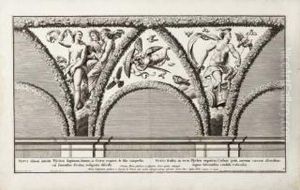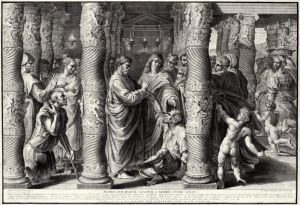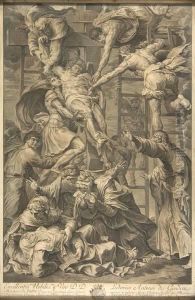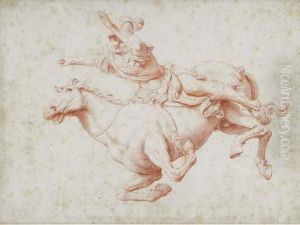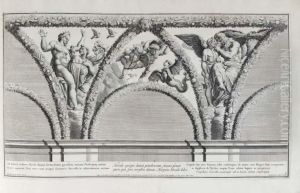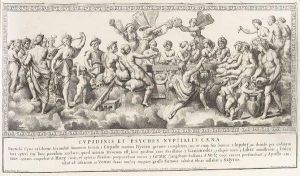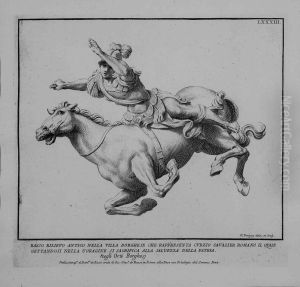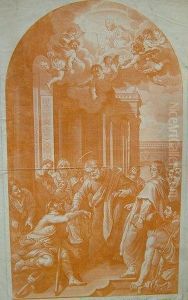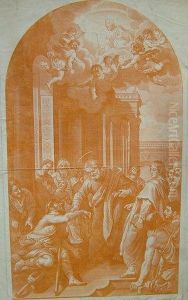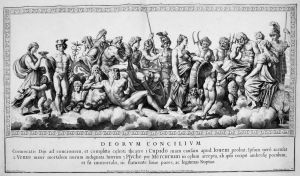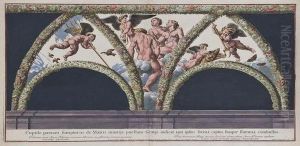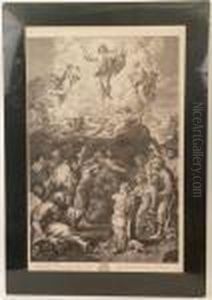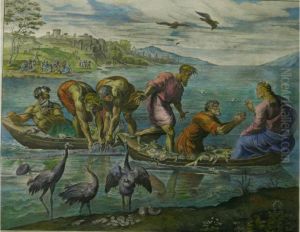Nicolas Dorigny Paintings
Nicolas Dorigny was a French engraver and draughtsman born on April 16, 1658, in Paris, France. He was part of a family of artists and engravers, being the son of Michel Dorigny, a painter and engraver himself. Nicolas was initially trained by his father and later by other prominent artists of the time. His early career was influenced by the classical baroque style, and he became known for his engravings after the works of renowned painters like Raphael and Charles Le Brun.
In 1685, Dorigny moved to Rome, Italy, where he would spend a significant portion of his career. There, he worked on a series of engravings based on the paintings in the Raphael Rooms at the Vatican Palace, which brought him considerable fame. His work was characterized by a combination of precision and grace, capturing the essence of the original paintings in his engravings. Dorigny's Roman sojourn also allowed him to study the works of other Italian masters, which further influenced his style and technique.
After nearly two decades in Italy, Dorigny returned to France in 1703, where he was received by the Académie Royale de Peinture et de Sculpture. He was granted the title of 'graveur du roi' (King's engraver) by Louis XIV, which was a significant honor and recognition of his talent and contributions to the arts.
Throughout his career, Dorigny worked on numerous projects and commissions, including portraits, historical scenes, and reproductions of famous artworks. His engravings were highly sought after by collectors and art enthusiasts of the time. He also contributed to the dissemination of the works of great artists, making them accessible to a broader audience through his engravings.
Nicolas Dorigny passed away on September 24, 1746, in Paris. His legacy continued through his works and the artists he influenced. Even today, his engravings are studied and admired for their technical skill and artistic beauty. They serve as a testament to the enduring appeal of classical art and the role of engravers in preserving and sharing cultural heritage.
